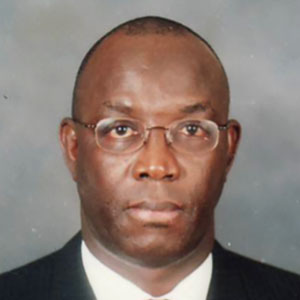Workshop 4: “Cooperation between Africa and its partners in the fields of defense and security “
Context
Defense-security cooperation between Africa and its external partners still depends on agreements concluded with the former colonial powers in a context of decolonization, despite its expansion to new actors since the late 1990s. Initially based on the concept of the concept of bilateral technical assistance, defense-security cooperation has undergone several changes as a result of the geopolitical upheavals that have occurred on the continent. Thus, for example, the interventionism of the post-independence years (Chad, CAR, DRC ex-Zaire) has gradually given way to a model of cooperation aimed at adapting to the requirements of African countries in their quest for a more diversified partnership in line with the multiple needs of their security tools (training, equipment, etc.). However, this new impetus for cooperation seems to be going through a cycle of turbulence on both the bilateral and multilateral levels. Indeed, the deterioration of the security situation over the last two decades (DRC, Mali, Central African Republic, Lake Chad Basin, Ethiopia, etc.) and the inability of most of the States concerned to provide effective responses, notwithstanding the sometimes direct intervention of external partners, have highlighted the need to rethink the terms of this security cooperation. Today, it is in acute crisis, given the growing negative perception of African public opinion, exasperated by the lack of tangible results in the face of terrorist groups. The ups and downs of the withdrawal of Operation Barkhane from Mali and the hostile demonstrations against UN troops in the DRC and Mali are signs of a deep crisis in bilateral and multilateral security cooperation between Africa and its partners. This situation, which is taking place against a backdrop of geopolitical rivalries between states (France, Russia, China, Turkey) and the emergence of new actors, including private military companies, is opening up a new era of redefining the stakes of cooperation between Africa and its external partners. However, this security cooperation is a natural necessity at a time when terrorism, climate change, and international organized crime are posing real risks to societies and economies on a global scale. These megatrends, which are matters of mutual interest for all states, compel them to help each other and show solidarity in order to establish a global security governance.
Objectives
Taking stock of bilateral and multilateral cooperation in the field of security, the aim is to explore ways and means of promoting mutually beneficial cooperation between Africa and external partners on new bases.
Issues to be addressed
- What are the obstacles to defense and security cooperation between Africa and its external partners? What new foundations should be established between States for effective security cooperation?
- What type of cooperation (bilateral, multilateral, private) should be promoted in the fight against violent extremism?
- What measures should be considered to better adapt UN peacekeeping missions to the security requirements of host countries?
Speakers
-
 Abdoulaye FALLModerator
Abdoulaye FALLModeratorRetired General
Born in 1952, recruited in 1972 and officer since 1975, he served without disruption during 40 years at various levels and positions in and outside the country. His different appointments as high rank officer include Commander of the expeditionary Force during GABU operation in GUINEE BISSAU, ECOWAS Force Commander and UN Force Commander during COTE D’IVOIRE crisis. He was Defense Attaché in MORROCO prior to his promotion as General and Chief of the military staff of the President. He has been for several years Chief of Defense Staff before retiring from active duty. He then served as Ambassador of Senegal to the P.R. of CHINA and ended his career as Minister Counselor in the President’s office.
-
 Amandine GNANGUENONTalker
Amandine GNANGUENONTalkerAssociate Research Fellow at the United Nations University Institute on Comparative Regional Integration Studies (UNU-CRIS)
Amandine Gnanguênon holds a PhD in political science from the University Clermont Auvergne. She works as an independent senior advisor for conflict prevention in West Coastal States. As a political analyst, she was research fellow at European Council on Foreign Relations (ECFR) and senior researcher at the Institute of Security Studies (ISS) in Dakar. She also set-up and led the sub-Saharan Africa programme at the Institute of Strategic Research, Ecole militaire (IRSEM) (2010-2013).
-
 Bernard QUINTINIntervenant
Bernard QUINTINIntervenant -
Oswald PADONOUSpeaker
